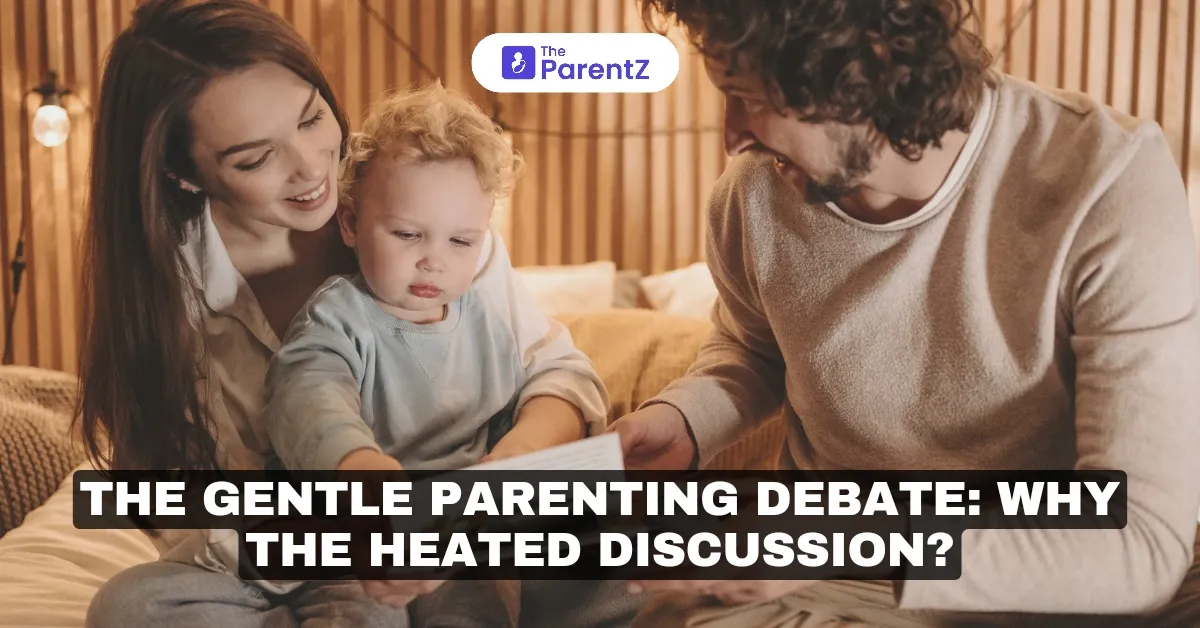Social media has become a battleground for parenting debates. A simple video of a mother handling her toddler's meltdown in a grocery store can spark hundreds of conflicting comments. From "This would never fly in my day," "My parents would have dragged me out of there so fast," to "I wish my mom had been this understanding," or "This is how you build trust with your children."
From the above scenario, it is easy to see how charged these conversations have become. Everyone seems to have an opinion, and they're not afraid to share it. Let's talk about this – really talk about it – because it's affecting how we raise our children and how we feel about ourselves as parents.
Why the Heated Discussion?
The intensity of the gentle parenting debate often stems from deeply personal experiences and generational differences. When parents see content about gentle parenting, it can trigger strong emotional responses based on their own upbringing. Those raised in strict households might defend traditional methods, saying, "It worked for me," while others who experienced trauma from harsh discipline advocate strongly for gentler approaches.
The debate becomes heated because it challenges fundamental beliefs about authority, respect, and child development. Traditional parents often worry that gentle parenting creates entitled, disrespectful children who can't handle real-world consequences. Meanwhile, gentle parenting advocates argue that traditional methods may achieve compliance through fear rather than understanding.
Social media amplifies these disagreements. Comment sections become battlegrounds where personal experiences clash with modern parenting research. Videos showing gentle parenting techniques often receive polarized responses - from praise for breaking generational trauma to criticism about "weak parenting."
The discussion intensifies because parenting choices feel deeply personal and consequential. Parents worry about making mistakes that could affect their children's future. This fear, combined with societal pressure and conflicting advice from experts, turns what could be constructive discussions about parenting styles into heated debates laden with judgment and defensiveness.
The Reality Check
Here's a common scenario: Your four-year-old is having a complete meltdown because you cut their sandwich "wrong." You're exhausted, running late for work, and can feel your blood pressure rising. The old-school approach might have been a stern "Stop crying right now, or else!" The gentle parenting approach suggests getting down to their level and saying something like, "I see you're upset about your sandwich. That must be frustrating."
Both approaches come from a place of wanting to raise well-adjusted children, but they take very different paths to get there.
The Hard Truths
Let's be honest – gentle parenting is hard. Really hard. It requires immense patience and emotional regulation and often feels like you're swimming upstream against your own upbringing. There are moments when staying calm seems impossible, and that's okay to admit.
On the flip side, strict disciplinary approaches might achieve immediate compliance but can leave lasting emotional scars. Many adults today are still unpacking trauma from authoritarian parenting, affecting their relationships and self-worth.
Finding Your Path
There's no one-size-fits-all approach. The key lies in understanding your child, your capabilities, and your circumstances. Sometimes, it's about finding a middle ground that maintains boundaries while preserving emotional connection.
Consider this scenario: Your teenager breaks curfew. The strict approach might mean immediate punishment without discussion. The gentle approach suggests having a conversation about trust and safety. The balanced approach? Maybe it's setting clear consequences while maintaining an open dialogue about their choices and feelings.
Impact on Children
Children are incredibly perceptive. They notice not just what we do but how we do it. When we choose our parenting styles, we're not just deciding on a disciplinary method – we're modeling how to handle emotions, conflicts, and relationships.
A child raised with consistent, gentle parenting might develop strong emotional intelligence and communication skills. However, they also need to learn about boundaries and consequences. A child raised with only strict discipline might be outwardly compliant but struggle with emotional expression and relationship-building later in life.
Moving Forward
Instead of picking sides in this debate, perhaps we should focus on these questions:
- What values do we want to instill in our children?
- How can we maintain boundaries while preserving emotional connections?
- What triggers our own reactive parenting, and how can we work on that?
Remember, it's okay to be imperfect. Some days, you'll nail the calm, conscious response. On other days, you might lose your cool and need to repair afterward. What matters is the overall pattern and your willingness to grow and learn.
If you are looking to transform your approach as your children grow, the article "How to Adjust Your Parenting Style as Kids Grow Older" offers valuable insights into adapting parenting techniques through different developmental stages.
Looking Beyond the Debate
The most therapeutic approach might be accepting that parenting is a journey of constant learning and adjustment. Maybe instead of debating which style is "right," we should focus on understanding our children's needs, our own limitations, and finding ways to bridge that gap with love, respect, and wisdom.
After all, our children don't need perfect parents – they need present, evolving, and authentic ones who are trying their best to grow alongside them.








Be the first one to comment on this story.